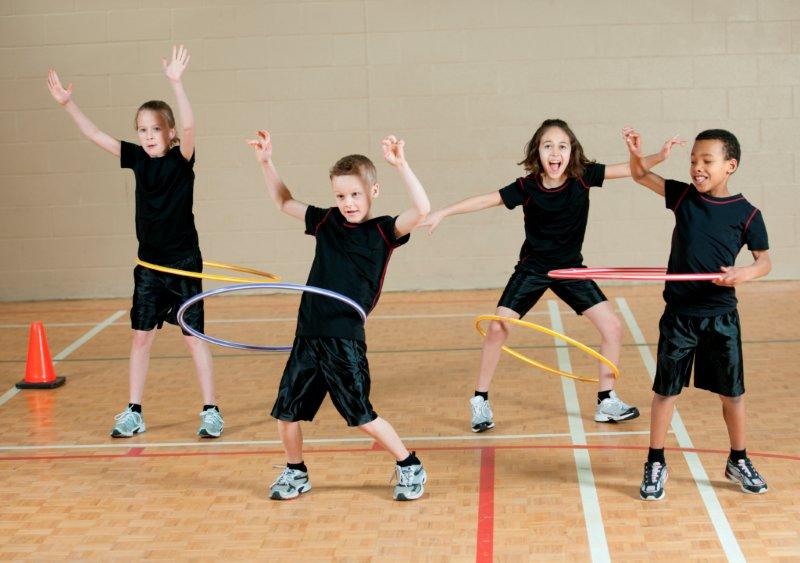
It is not only the amazing routines of Cirque du Soleil which can dazzle us when it comes to circus skills, it seems. There is tremendous academic and enrichment value in treating this seemingly marginal activity rather more seriously.
Following the phenomenal success of BAFTA-award winning Drama 'Marvellous' which featured the incredible life story of one Neil Baldwin, a former circus clown with learning difficulties who defied all the odds to become kitman at Stoke City Football Club and earn the Freedom of Stoke-on-Trent, circus skills are becoming all the rage.
Baldwin ran away to join his circus, but now, rather than being a cause of youngsters fleeing the nest, circus skills are being used as a way of preventing marginalised young people from dropping out. And, perhaps surprisingly, there is a branch of academic study to examine the social impact of circuses, known as "circademics" according to a BBC report.
The idea of "social circus" is being used to help youngsters in many different countries. A map from Cirque du Soleil shows how such schemes are springing up all over the world, with the ones in Mongolia, Madagascar, Alice Springs (Australia) and the Arctic Circle (northern Canada) particularly intriguing.
Practitioners claim that teaching children circus skills helps them to trust other people, improves their "physical literacy", and raises their self-esteem and sense of identity.
These are skills that are particularly useful for young people in conflict zones and divided societies - and there have been projects in places such as Afghanistan, Bosnia and Northern Ireland, with organisations like Clowns Without Borders to bring circus to families in refugee camps or warzones. This humanitarian project, which aims to relieve suffering through making people laugh, began in the conflict in the 1990s in the break-up of Yugoslavia. It now operates in Africa, Asia, the Middle East and Latin America.
There has also been the Mobile Mini Circus for Children in Afghanistan, running since 2002. The founder, David Mason, said he wanted to give children "the childhood they had been deprived of after so many decades of war".
In an attempt to measure the value of such circus education projects, the Circus Research Network was set up in 2014 by Professor Ron Beadle of Northumbria University. It brings together academics and those running "social circus" schemes, into the discipline now referred to as "circademics". Professor Beadle claims there is "compelling evidence" that circus benefits disaffected young people and he wants circus to become an option in the school curriculum. "These transformative effects can be achieved with only an hour of teaching a week, which takes no more time than a PE lesson," he says.
He argues that circus is different to music and sport because learners can master basic skills quickly and soon reach a level where they can teach others. 'Teaching other kids gives them an early experience of responsibility which is hugely valuable,' he says.
On that note there are many options for staff members seeking to introduce circus skills into their school including Shooting Stars Circus, but one of the UK's longest-running circus schools is based in Belfast, Northern Ireland and celebrates its 30th anniversary this month.
The Belfast Community Circus School was set up as a response to the Troubles and its brightly-painted circus van became a regular sight on the Shankill Road and Falls Road in the 1980s and 1990s. Will Chamberlain, head of the circus school, says they were quickly accepted by both communities because unlike other activities such as music and sport, circus was not "owned" by any particular religious or political group.
"People thought: 'What could be crazier than starting a circus in Belfast in the middle of the Troubles?' So they left us to it," he says.
Circus became a formal part of the curriculum at St Vincent's Centre, a school for 11 to 16 year-olds who have been excluded from mainstream education, with teachers reporting improvements in pupils' behaviour, attendance, and literacy rates with only two hours of circus training every week.
Today the Circus School's weekly skills workshop in the centre of Belfast is attended by 300 children a week, with 1,200 on a waiting list.
Mr Chamberlain says circus has worked well in Belfast because of the physical risks involved in thrill-seeking activities like walking a tightrope or acrobatics. "Circus gives an outlet for safe, supported risk-taking to marginalised young people,'" he says. It also encourages children to trust other people regardless of their religion. "We do not sit down and talk to kids about how they are all the same or anything like that, but if you are a Protestant lad on top of a human pyramid and the person holding you up is Catholic, you can't just walk away. You have to trust them."
Social circus does not only aim to change young people who are taught new skills, but also the adults who come to watch them perform.
NoFitState Circus in Wales has run skills workshops with children from the Shirenewton and Rover Way sites for gypsy, Roma and traveller people in Cardiff, proving that circus skills can unite otherwise potentially antagonistic groups.
So, circus has been proven to be a valuable outreach tool because it does not require children to be able to read or write and it does not pit them against each other. As Will Chamberlain says, "In most activities some kids are better than everyone else at academic work, music or sport, but circus is all about working as a team and achieving your own potential. Any child can learn a circus skill, whether it is juggling, trapeze, performing magic tricks. Or even being a clown."
Search 'Circus' on Handsam SchoolTripsAdvisor for more details. If you would like to know more about running circus skills activities safely then please contact us on 03332 070737 or info@handsam.co.uk.



